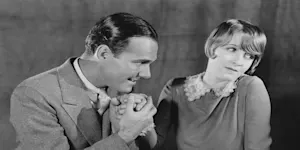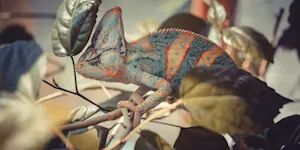What Makes This Word Tick
"Callow" is often used to describe someone who is young and inexperienced, lacking the sophisticated polish or wisdom that comes with age. The word paints a picture of someone who might be full of potential but still needs a touch of life’s rough-and-tumble to mature fully.
If Callow Were a Person…
If callow were a person, they would likely be a fresh college graduate, eager to start their first job but still green around the edges. Think of someone with enthusiasm to spare but maybe a little wet behind the ears when it comes to the ins and outs of the real world.
How This Word Has Changed Over Time
The word "callow" has stayed pretty consistent over the years, maintaining its focus on youthfulness and inexperience. While it once referred specifically to young birds not yet able to fly, it now more broadly applies to human youthful immaturity. No feathers required!
Old Sayings and Proverbs That Use Callow
While there aren’t many ancient sayings twinning up with "callow," its essence is captured in such maxims as "youthful folly" and "green as grass," both conveying the spirit of inexperience.
Surprising Facts About Callow
You might be surprised to learn that "callow" originally comes from the Old English "calu," meaning bald, which later referred to featherless young birds. Imagine a nest of scrappy little ones, not yet ready for the big flight of life!
Out and About With This Word
Callow often pops up in formal settings, like literature or critiques, where describing someone's lack of experience with a sophisticated word adds a layer of nuance to the conversation.
Pop Culture Moments Where Callow Was Used
Callow moments usually aren't spotlighted in pop culture headlines, but you'll find the spirit of callowness alive and well in coming-of-age films, where young protagonists stumble through the rites of passage while finding their wings.
The Word in Literature
You'll often find "callow" nestled in novels exploring themes of growth and personal development. Classic writers who explore the youthful journey to maturity—we’re looking at you, Dickens and Austen—aptly capture its essence in their characters.
Moments in History with Callow
Think of any young leader who rose to prominence with energy but had much to learn. JFK's early days as president come to mind, where idealism met the complex realities of governance—a classic callow moment.
This Word Around the World
Different cultures interpret the concept of inexperience in various ways. In French, "vert" can mean both "green" and "untested," while the Japanese might refer to a novice as "wakakusha," meaning young scholar, embodying both growth and potential.
Where Does It Come From?
Tracing back to Old English "calu," meaning bald or featherless, "callow" evolved through the ages to its current form, retaining the idea of something (or someone) needing more development before being fully complete.
How People Misuse This Word
People sometimes use "callow" to simply mean young, without capturing its nuance of inexperience and immaturity. Remember, it's about more than age; it's about growing into wisdom.
Words It’s Often Confused With
Naive: While both imply inexperience, naive often suggests innocence or a lack of critical awareness.
Young: Merely refers to age, without indicating a lack of maturity or experience.
Inexperienced: A broader term that doesn’t necessarily imply youth, just lack of experience.
Additional Synonyms and Antonyms
Synonyms for "callow" include immature, inexperienced, and juvenile. Antonyms would be mature, seasoned, and sophisticated.
Want to Try It Out in a Sentence?
The intern's callow enthusiasm was infectious, but he had much to learn about the nuances of corporate diplomacy.
















